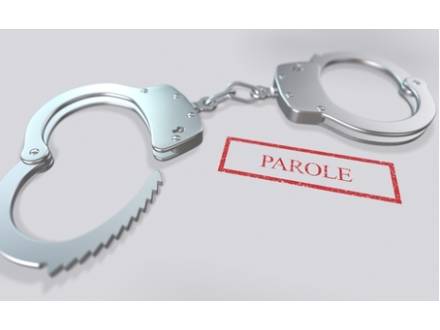Recent Blog Posts
How the Amount of Drugs Influences Charges and Sentencing
 A woman recently arrested with almost 1,300 pounds of cocaine was given a $750,000 bond. The Beaumont woman has been charged with first-degree felony drug possession after being stopped on I-10 for a traffic stop. The cocaine was being transported in a white, 15-passenger van towing a U-Haul trailer. When the police saw the driver commit a traffic violation, the woman was pulled over, and a K-9 was deployed, alerting the police officer to the presence of narcotics.
A woman recently arrested with almost 1,300 pounds of cocaine was given a $750,000 bond. The Beaumont woman has been charged with first-degree felony drug possession after being stopped on I-10 for a traffic stop. The cocaine was being transported in a white, 15-passenger van towing a U-Haul trailer. When the police saw the driver commit a traffic violation, the woman was pulled over, and a K-9 was deployed, alerting the police officer to the presence of narcotics.
When the U-Haul trailer was searched, the police found 12 large containers filled with cocaine. The street value of the cocaine is estimated to be about $17.3 million, or $13,584 per pound. The woman was transported to the Jefferson County Jail, where she was charged with Possession of a Controlled Substance of more than 400 grams. If the woman is able to pay the bond, she will be forced to wear a GPS monitor and remain in Jefferson, Harris, or Chambers counties.
Can You Defend Yourself Against Police Excessive Force?
 With a very narrow exception, it is virtually never legal in the state of Texas to use self-defense against a police officer. Using self-defense against a police officer – even if you feel justified because the officer is using excessive force – is generally charged as resisting arrest or assault. Under Texas Penal Code 9.31(c), if a police officer uses excessive force before the person attempts to resist, then that person may, in response, use "reasonable force to resist."
With a very narrow exception, it is virtually never legal in the state of Texas to use self-defense against a police officer. Using self-defense against a police officer – even if you feel justified because the officer is using excessive force – is generally charged as resisting arrest or assault. Under Texas Penal Code 9.31(c), if a police officer uses excessive force before the person attempts to resist, then that person may, in response, use "reasonable force to resist."
As you might imagine, this is a very complex area of the law, and claims of self-defense against a police officer are rarely successful without clear documentation of excessive force. While Texas generally allows the use of self-defense, and self-defense is one of the primary defenses to charges of assault, there are certain limitations. If you have been charged with assault or resisting arrest, and you believe you were justified in your response to excessive force, speaking to a Conroe, TX criminal defense attorney can be beneficial.
The Process of a Direct Appeal in Texas
 When the Court of Appeals is asked to overturn your sentence because of a legal error made by the judge during your trial, this is known as a direct appeal. While any case in which the death penalty has been assessed will go directly to the Court of Criminal Appeals, other criminal cases will go to one of 14 Courts of Appeals across the state, and the decisions of the Court of Appeals can be reviewed by the Court of Criminal Appeals. If you believe the judge in your case made an error that would have changed the outcome of your trial, it is time to speak to an experienced Conroe, TX appeals attorney.
When the Court of Appeals is asked to overturn your sentence because of a legal error made by the judge during your trial, this is known as a direct appeal. While any case in which the death penalty has been assessed will go directly to the Court of Criminal Appeals, other criminal cases will go to one of 14 Courts of Appeals across the state, and the decisions of the Court of Appeals can be reviewed by the Court of Criminal Appeals. If you believe the judge in your case made an error that would have changed the outcome of your trial, it is time to speak to an experienced Conroe, TX appeals attorney.
What Are Some Reasons for a Direct Appeal?
Perhaps the judge in your case excluded evidence that would have benefitted you or admitted certain evidence that almost certainly harmed your outcome. Either of these would be the basis for overturning your conviction through appeal. Maybe your attorney intended to put a witness on the stand who would have spoken to your character, yet the judge refuses to let him or her testify.
What Are the Best Defenses to Assault Charges in Texas?
 Recently, three juveniles and two first responders suffered injuries from an apparent free-for-all in Forney, near the North Forney High School. As he attempted to break up the fight, a Forney ISD officer was attacked from behind, as multiple suspects attempted to grab the officer’s gun.
Recently, three juveniles and two first responders suffered injuries from an apparent free-for-all in Forney, near the North Forney High School. As he attempted to break up the fight, a Forney ISD officer was attacked from behind, as multiple suspects attempted to grab the officer’s gun.
During this attempt, the gun was discharged, and while no one was hit, the deputy and three juveniles were hit in the leg by discharge fragments. The incident occurred after school hours and was not on the school premises. Because so many people were involved, no assault arrests have yet occurred.
There are three types of assault in the state of Texas, ranging from misdemeanor assault to felony assault, with a wide array of punishments and penalties. Assault is always a serious offense, even when it is charged as a misdemeanor. If you are charged with assault, it is important that you speak to a Conroe, TX criminal defense lawyer.
What Are the Differences Between 2254 and 2255 Writs?
 The legal system can often be complex and confusing for those forced to navigate the system because of a criminal conviction. One of the more complicated issues relates to a Writ of Habeas Corpus. A writ is an order from a higher court to a lower court or to a government agency or official.
The legal system can often be complex and confusing for those forced to navigate the system because of a criminal conviction. One of the more complicated issues relates to a Writ of Habeas Corpus. A writ is an order from a higher court to a lower court or to a government agency or official.
When a Writ of Habeas Corpus is filed, you are asking the court to order the government agency to appear and bring you before the court. A federal habeas corpus writ refers to your right to challenge the conviction or sentence in federal court after being convicted of a criminal offense.
The specific situation will determine what type of federal writ should be filed. If your constitutional rights were violated during your trial or sentence and you are seeking justice when all other avenues have been exhausted, a Conroe, TX appeals attorney can help.
Can I Be Charged With a Felony For Having THC Oil in Texas?
 Twenty-four states have legalized marijuana for recreational use, but Texas is not one of them. Cannabis is considered a controlled substance in Texas, and possession of the drug is a serious crime that can result in heavy fines and prison time. Even waxes and oils that contain Tetrahydrocannabinol (THC) are considered controlled substances and can carry heavy penalties if found in someone’s possession.
Twenty-four states have legalized marijuana for recreational use, but Texas is not one of them. Cannabis is considered a controlled substance in Texas, and possession of the drug is a serious crime that can result in heavy fines and prison time. Even waxes and oils that contain Tetrahydrocannabinol (THC) are considered controlled substances and can carry heavy penalties if found in someone’s possession.
As cannabis use becomes more widespread, Texans may forget that THC products are illegal. THC oil, for instance, has a number of uses that people find beneficial and may not be easily recognized as a controlled substance. If you are facing drug possession charges, make sure to consult a Texas criminal defense attorney who can begin building your defense.
When Does Possession of THC Oil Become a Felony?
Texas allows marijuana use for specific medical conditions such as seizures, cancer, ALS, autism, and post-traumatic stress disorder (PTSD). THC oil, on the other hand, is considered an even more dangerous substance than the marijuana plant because of its high concentration and potential for abuse. It therefore is classified as a Scheduled I controlled substance and does not have any medical value under Texas law. Any oil or substance that contains a concentration of at least 0.3% Delta-9 THC is illegal to possess, manufacture, or distribute.
How Can I Prove Self-Defense in an Aggravated Assault Case?
 Aggravated assault is a more serious offense than assault. It usually means the defendant knowingly caused serious bodily harm or flashed a deadly weapon during the act. In its basic form, aggravated assault is a second-degree felony that carries between two and 20 years in prison and a fine of up to $10,000. If the assault was committed in the context of domestic abuse or caused traumatic brain injury, it is a first-degree felony and carries five years to life imprisonment, as well as a fine of up to $10,000.
Aggravated assault is a more serious offense than assault. It usually means the defendant knowingly caused serious bodily harm or flashed a deadly weapon during the act. In its basic form, aggravated assault is a second-degree felony that carries between two and 20 years in prison and a fine of up to $10,000. If the assault was committed in the context of domestic abuse or caused traumatic brain injury, it is a first-degree felony and carries five years to life imprisonment, as well as a fine of up to $10,000.
One of the most powerful defenses against an aggravated assault charge is self-defense. If you acted to defend yourself or others, you might be able to reduce the penalties or even have the case dismissed. However, Texas laws on self-defense are specific and can make a self-defense claim somewhat difficult to prove. The best way to argue self-defense is through an experienced attorney. If you acted in self-defense and are being charged with aggravated assault, contact a Texas criminal defense lawyer as soon as possible.
What Are Common Conditions for Parolees?
 Parole is a state program for integrating incarcerated individuals back into society. It grants early release to detainees who meet certain criteria. The decision to grant parole is made by the Texas Board of Pardons and Paroles and is based on many factors.
Parole is a state program for integrating incarcerated individuals back into society. It grants early release to detainees who meet certain criteria. The decision to grant parole is made by the Texas Board of Pardons and Paroles and is based on many factors.
However, parole is meant to be a transition back to civil and community life. Parolees are, therefore, subject to various conditions that they must fulfill for a period of time after they are released. Some conditions are standard for all parolees, while others are specific conditions imposed based on the crime. This article will explore both, but make sure to consult a Texas parole attorney about any questions you may have regarding parole.
What Are the Standard Conditions for Parole?
Certain requirements are imposed on nearly all parolees, regardless of the crime. Failing to meet these requirements can be considered a parole violation, which may result in a return to prison. They include:
Can a Texas Parole Decision Be Reversed?
 If a parolee is suddenly notified that their parole decision has been reversed, it can be a crushing blow to that individual as well as to his or her loved ones. Parole allows those convicted of a crime to serve only a part of their prison sentence. The remainder of the sentence will be spent under court-ordered supervision. The goal is to reintegrate those who have served prison time into the community while they remain under monitored supervision.
If a parolee is suddenly notified that their parole decision has been reversed, it can be a crushing blow to that individual as well as to his or her loved ones. Parole allows those convicted of a crime to serve only a part of their prison sentence. The remainder of the sentence will be spent under court-ordered supervision. The goal is to reintegrate those who have served prison time into the community while they remain under monitored supervision.
Parole is often granted to those serving time for less serious criminal offenses. Assuming the offender has exhibited good behavior while in the facility, observed all rules, and served a portion of their prison term sentence, the individual may be eligible for parole. The granting of parole may not endanger the public.
If a parolee is notified of a parole rescission or revocation, an experienced Dallas criminal defense attorney from Pullan & Young should be contacted. Your attorney will have extensive experience regarding Texas parole issues. This is not a time to hesitate. The sooner a strong legal advocate can sort out the details of parole reversal, the better the outcome will likely be.
How Can I Appeal My Sentence in Texas?
 Sometimes, a defendant is punished with a sentence he feels is illegal. If so, he can try to appeal the sentence by filing something known as a writ of habeas corpus, which is a legal procedure aimed at determining whether the court has unlawfully convicted and sentenced someone. This article will examine how you can do that in Texas. Of course, if this applies to you, speak with a qualified Montgomery County, TX criminal defense attorney for more tailored advice on how to appeal your sentence.
Sometimes, a defendant is punished with a sentence he feels is illegal. If so, he can try to appeal the sentence by filing something known as a writ of habeas corpus, which is a legal procedure aimed at determining whether the court has unlawfully convicted and sentenced someone. This article will examine how you can do that in Texas. Of course, if this applies to you, speak with a qualified Montgomery County, TX criminal defense attorney for more tailored advice on how to appeal your sentence.
Responding to an Unjust Sentence
In the state of Texas, convicted defendants have two ways of establishing that their sentence is not legal:
- Unlawful conviction: They can claim that their sentence is not lawful because they were unjustly convicted of a crime that they did not commit.
- Unlawful length of sentence: They might admit that they committed the crime attributed to them and agree that they deserve some sort of punishment but dispute the specific sentence on the grounds that it is too severe for the crime.







